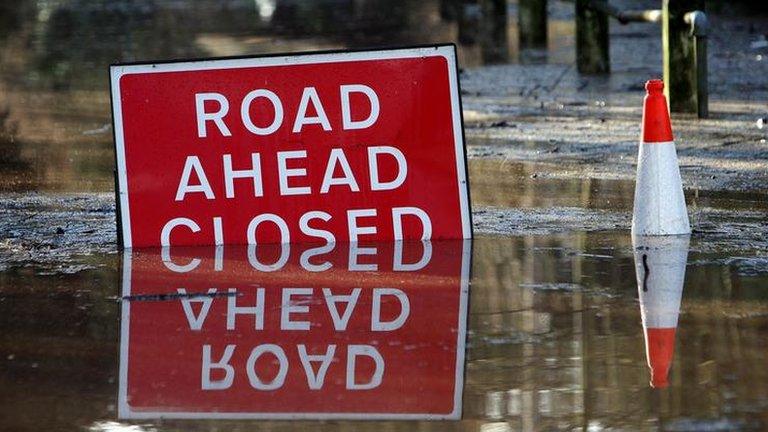Northern Ireland rescue teams facing snow drifts up to 18ft
- Published
PSNI Chief Inspector Tim Mairs describes the operation amid deep snow.
Specialist rescue teams have been deployed to help vulnerable people at risk or isolated because of the heavy snow across Northern Ireland.
Police said they monitored more than 30 such incidents on Saturday and deployed rescuers to assist 10 people in need.
The PSNI said some rescuers had to walk for miles through heavy snow to reach housebound people in some rural areas.
Chief Inspector Tim Mairs said people were confronted with "possibly 12 to 18ft drifts of snow" in some places.
Airlift
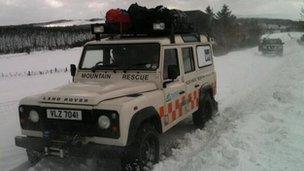
The North West Mountain Rescue team was one of a number of organisations involved in the operation
The police said they were working closely with mountain rescue volunteers and other statutory emergency staff to provide assistance to people in difficulty due to the extreme weather.
The RAF has also sent a Sea King helicopter, with a military mountain rescue team on board, from Anglesey in Wales to assist the rescue operation.
The PSNI said there had been a "multi-agency response" to the situation, with ambulance staff, firefighters, Road Service, local councils, electricity providers, health providers, the Red Cross and rescue volunteers "working closely together to help individuals".
Meanwhile, thousands of people are still without power due to damage to the electricity network and roads in many areas are blocked.
Ch Insp Mairs said in one of the 10 more serious incidents, rescue teams had to airlift oxygen to a 79-year-old man.
'Weak and frail'
The officer said the pensioner had been snowed in, had no electricity and no means of getting further oxygen supplies.
"Several attempts were made by local police to get to the man but the road was impassable," the chief inspector said.
"The police helicopter was then tasked to airlift the casualty to hospital. However, the man was unable to be moved as he was so weak and frail, so the helicopter was then used to deliver vital oxygen."
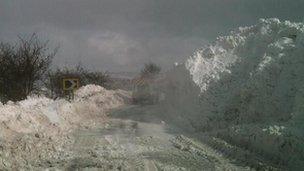
The rescue teams have had to battle through deep snow to reach those in need
Ch Insp Mairs said that in other cases, search and rescue teams were "going in on foot, using snow shoes to walk in, sometimes over miles and miles to provide medication to vulnerable people, to check that people who we've lost contact with are still alive".
'Immense bravery'
"Those operations are going on right now as we speak and they have been ongoing over the last two days," he added.
Ch Insp Mairs said the rescue effort represented "immense bravery and commitment" on the part of the volunteers and staff involved.
"What they are going through is challenging and its physically exhausting and many of these people have worked exceptionally long hours, but they do it in very safe way and their commitment is very high," he added.
"At the moment I am personally humbled by the way these people step up every time and work in horrendous conditions to bring help and assistance to those who we identify as being at risk".
- Published24 March 2013
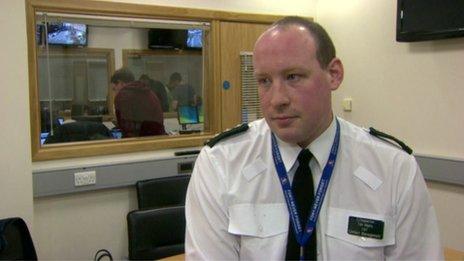
- Published24 March 2013
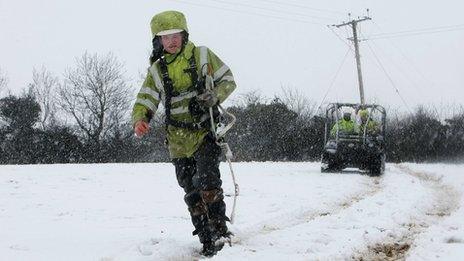
- Published2 March 2015
